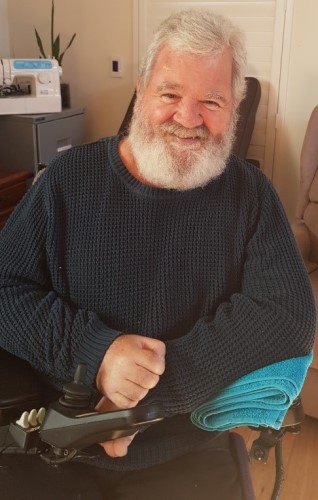World Continence Week encourages clients to share
- Five million – or one in five – Australians suffer from incontinence at some point
- Can affect men and women of all ages – up to 13% of men and 37% of women
- RDNS Silverchain offers funded and fee-for-service in-home continence management
- 15-22 June is World Continence Week
Incontinence affects one in every five Australians at some point in their lives. While women are more likely to suffer from urinary and/or bowel continence issues, men are also prone. It is estimated that up to 13 percent of men suffer from the disease, while 37 percent of women – more than one in three – are affected.
A wide range of factors can cause incontinence, including pregnancy and childbirth, ageing, obesity, recurrent urinary tract infections, disabilities, surgery and some medications. It is estimated that incontinence costs the healthcare system more than $450 million, and is a leading cause for admittance into aged care facilities.
“Continence issues affect one’s quality of life in a big way – including impacting sleep, relationships, work, travel, sports and hobbies,” said Ann Tuvik, Director of Clinical Operations. “The risk of falls and pressure injuries is higher, and the humiliation associated with incontinence means people do not seek help. They become socially isolated, anxious and depressed.”
In Western Australia, 15 specialists make up the Continence Management and Advisory Service (CMAS). CMAS is a free service funded by the West Australian government, offering eligible clients $490 per year to assist with meeting the cost of continence products. Once a client is deemed eligible, they are assessed by a continence specialist.
In Adelaide, clients are assessed by Registered Nurses from RDNS Silverchain, part of Silverchain Group, which offers funded and fee-for-service in-home continence management.
“We take a personal approach, as we understand every client is different,” said Registered Nurse Rachel Roberts.

Adelaide grandfather Rod Flight, who is wheelchair bound, has been receiving continence management support for 12 years after he was injured in a workplace accident.
“I had a bad mining accident in 2008 which left me an incomplete tetraplegic – meaning I have no feeling from the chest down,” Mr Flight said. “I spent a few weeks in ICU, then I was in the spinal unit, before I was released with an indwelling catheter (from the urethra into a bag). For the last eight years I have had a suprapubic catheter (through the stomach into a bag), so I have RDNS Silverchain come in every four weeks to change it.
Thanks to RDNS Silverchain, the 62-year-old artist said his visits to hospital had been less frequent and he was able to do the things he loved again.
“I was getting bladder and urinary tract infections on a regular basis,” he said. “They were getting in the way of my mouth painting – I took it up after the accident. But in the last 12 months I have been lucky to avoid hospital thanks to the care I receive from RDNS Silverchain – they have been a real lifesaver for me.”
Perth resident Faye Caldwell has been a Silverchain client for nine years.
“I had bowel cancer, and it was quite an aggressive type, which meant I needed a stoma bag (where the end of the bowel is brought to the outer surface of the abdomen to release waste into a stoma bag),” she said. “The bag was causing me grief though – I would be at the shops and have to leave because it was leaking, so I decided to have it removed, which left me with an incontinent bowel as a consequence.”
The 75-year-old was referred to CMAS – not only reducing embarrassment, but also the financial strain of paying to visit specialists regularly.
“With Silverchain and CMAS, you get that support with the products provided, such as continence pads and ointment to reduce irritation,” she said. “It really does impact my quality of life in a wide range of ways – I don’t have a social life, I have to eat a very bland, regimented diet, I take three baths a day and I have broken sleep – but I count my blessings. Silverchain have been wonderful, and I am so grateful to know that if things get worse, I can count on them.”

